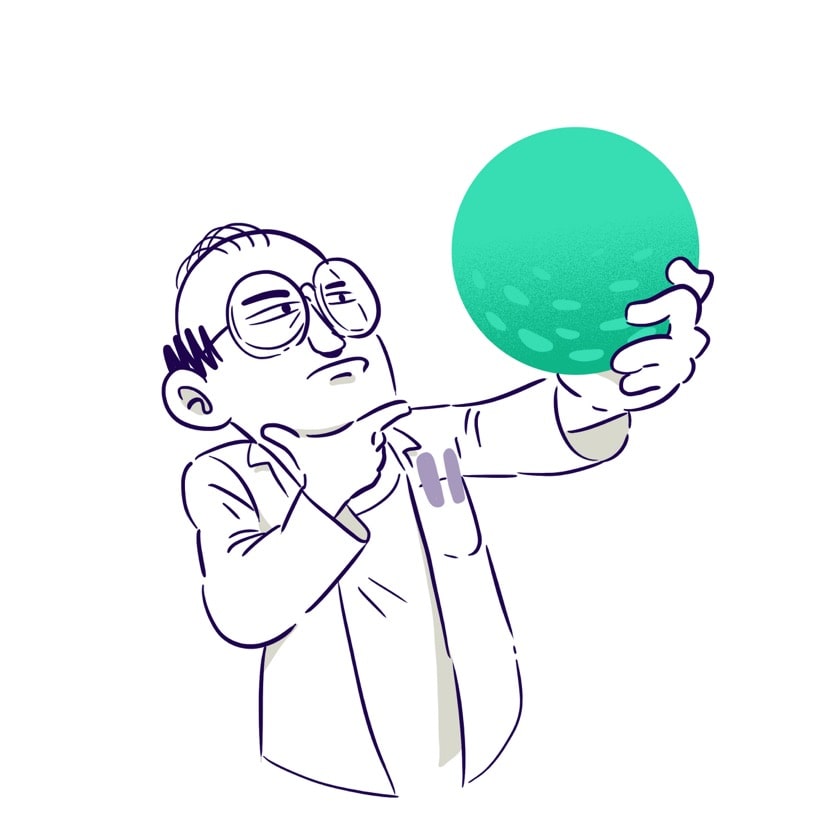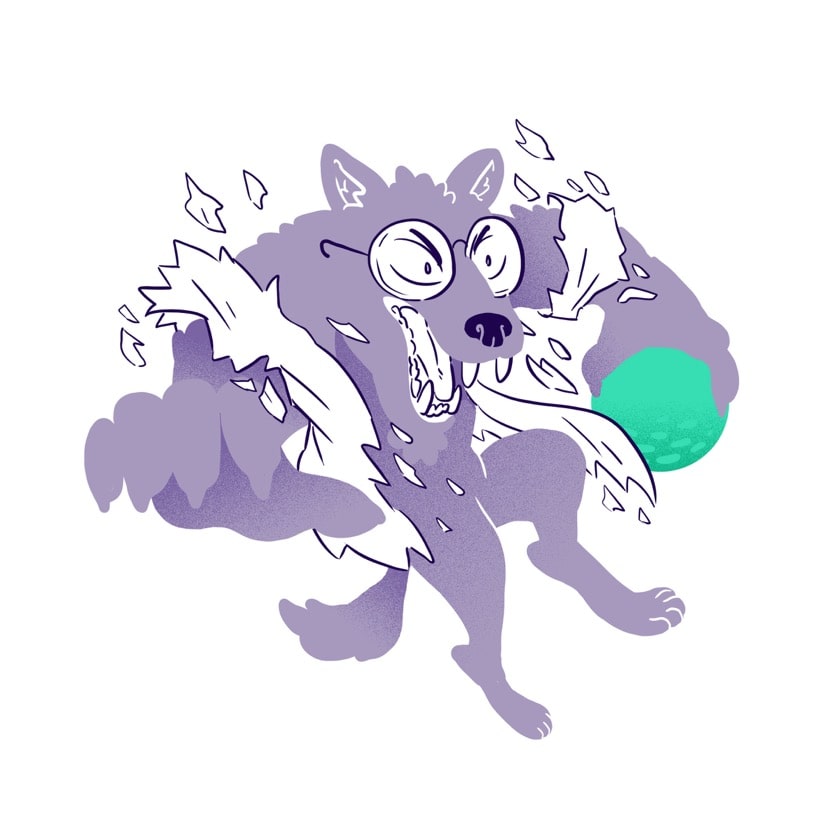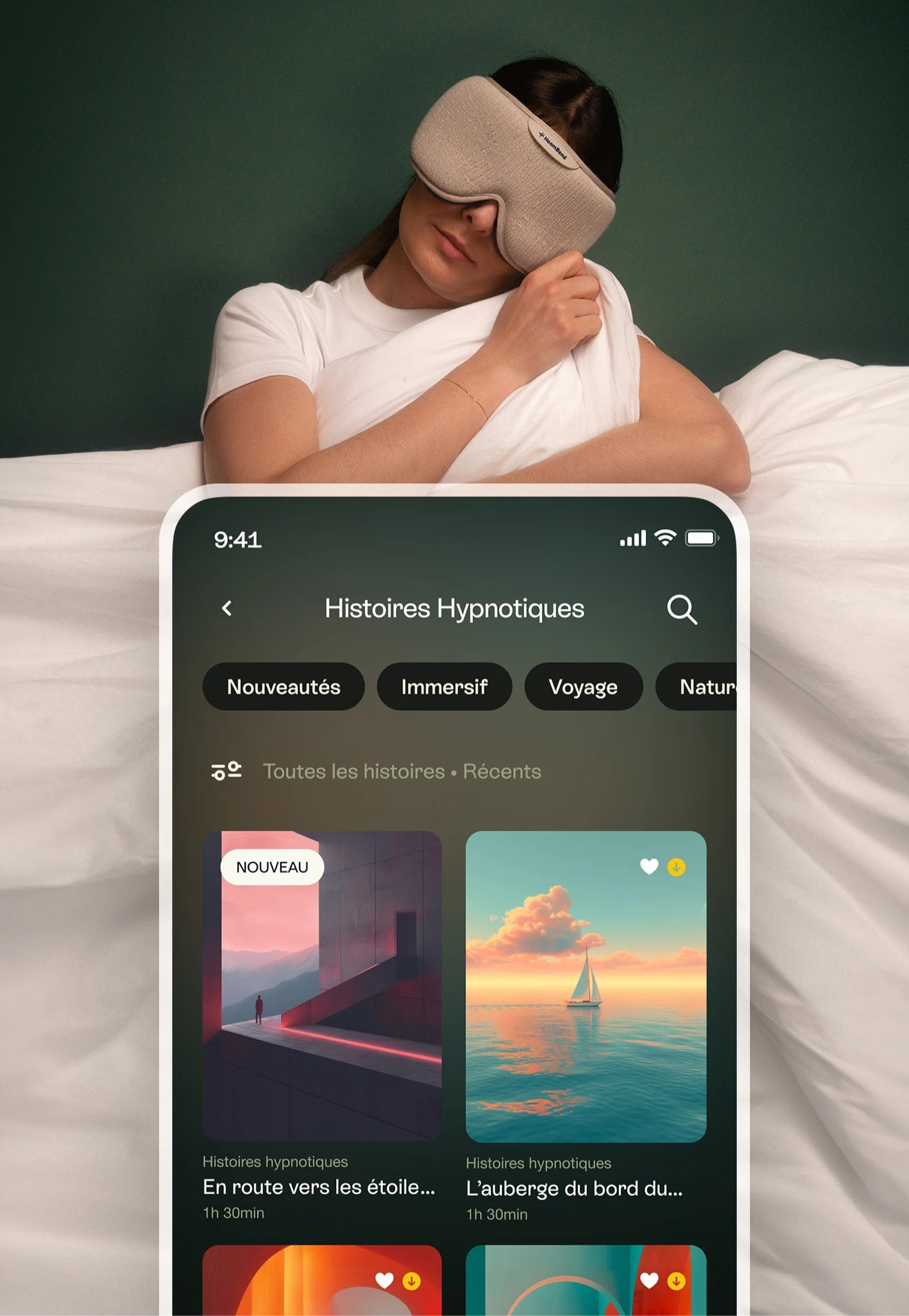Does the full moon really keep us from sleeping?
Popular beliefs about the moon, regarding its supposed impact on sleep, are numerous. Almost as numerous as the stars in the sky of our nights. Throughout time, the effects of the full moon on sleep have given rise to stories, myths, or even some urban legends not necessarily conducive to sweet dreams. Do we all have a werewolf sleeping inside us that awakens on a full moon night? What is the real impact of the moon on the quality of our sleep? There are many questions, especially about the second one (serious studies on werewolves being, unfortunately, much less numerous!). For a long time, the scientific community struggled to concretely establish a link between the full moon and sleep, but in recent years, significant discoveries have been made.
So there are new elements to sink our werewolf teeth into, and they are not necessarily crescent moons!

We asked the moon why we couldn't sleep
Long before inspiring a famous song by the group Indochine, the lunar body has been much talked about, giving rise to popular beliefs that still resonate strongly in our society today. A belief being by definition unnecessary to justify or verify, the impact of the lunar cycle on our sleep has not been demonstrated any more than the existence of large hairy creatures. Beyond even a characterized link between sleep and the moon, the latter would have an influence on the criminal behaviors of some individuals, significantly promoting them. Indeed... Between werewolves and criminal night terrors, the full moon really has a bad reputation!
Scientists, for their part, to be more down-to-earth, and failing to reach the moon, have sought a correlation between sleep quality and the full moon phase.
Besides its links with our werewolf friends and the increase in crime, can we really establish a relationship between the full moon and sleep? Many studies have been conducted in this direction, but without success. Indeed, in 2008, a study stated that "there is no solid evidence that human biology is regulated by the lunar cycle"1. This study, like others before it, tends to establish a link between daylight and our circadian rhythm. Our biological clock is partly governed by light: waking and sleeping times are, to a large extent, determined by an endogenous time program that uses sunlight as a training signal. So, the sun of our nights would not be the moon? This is essentially what the research concluded until not so long ago, before a scientist published a study putting the moon back in its rightful place: at the heart of our nights.
Target: moon!
It was in Basel, in 2013, that an experiment was conducted by Christian Cajochen on this subject. Well, not quite, because originally, his study analyzed the effects of age on sleep. It was only later, during an evening at a bar with his colleagues from the University of Basel, that Professor Cajochen had the idea to use the results of his study to check the impact of lunar cycles on sleep. The study of these cross-analyses was published in 2013 in the highly reputed Current Biology2. The verdict? Target moon achieved: yes, the full moon does have an impact on the quality of our sleep! But not, as one might think, because of its radiation (like the sun), but rather thanks to the rhythm of its cycles. Indeed, the subjects of the study were confined for the entire duration of the experiment, without contact or reference to an external light source. The electroencephalogram used during this study thus demonstrated that during full moon phases, REM sleep decreased by 30%, and total sleep time was reduced by 20 minutes. Moreover, the melatonin level was measured at 4 pg/ml (picograms per milliliter) in the blood at the time of the full moon, while it was twice as high during the next lunar phase (new moon). Our biological clock would therefore be set to the moon's cycles, even though we do not see it directly and its light does not reach us.
And to think this study was unplanned, we can therefore thank scientists for going out for a drink after work!
A small drink for Man, a giant leap for Humanity's sleep
It is with this lunar maxim that one could remember Professor Cajochen's study. We now know scientifically that the lunar rhythm can modulate the structure of sleep in an individual when measured under the strictly controlled conditions of a circadian study protocol, without any time cues. This study has since inspired others, notably in 20143 and has been quite unanimously recognized as relevant by the scientific community. Beyond any myth or popular belief, the moon does have a direct influence on the tides as well as on the biological rhythm of certain species, including Humans4.

While it is now established that the full moon impacts the quality of our sleep, we can still put its influence on other more mysterious phenomena into perspective, such as the increase in crime or... our transformation into a werewolf! Indeed, we can look the full moon straight in the eye, knowing scientifically that its rays do not affect us: we will not turn into werewolves. But did we really need a scientific study to reassure you on this point? In any case, Little Red Riding Hood still has many starry nights ahead of him!
Sources :
[1] Human responses to the geophysical daily, annual and lunar cycles, Foster RG, Roenneberg T, “Current Biology”, September 2008 [2] Evidence that the Lunar Cycle Influences Human Sleep, Cajochen Christian, Altanay-Ekici S et al, “Current Biology”, August 2013 [3] Association between lunar phase and sleep characteristics, Turanyi CZ, Ronai KZ et al, Sleep medicine, November 2014 [4] Human responses to the geophysical daily, annual and lunar cycles, Foster RG1, Roenneberg T, Current Biology, September 2008



Leave a comment